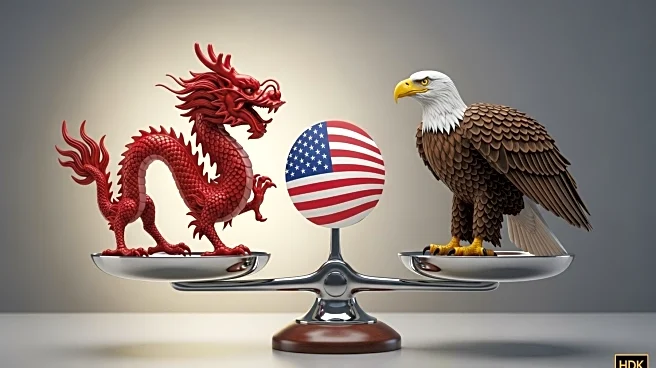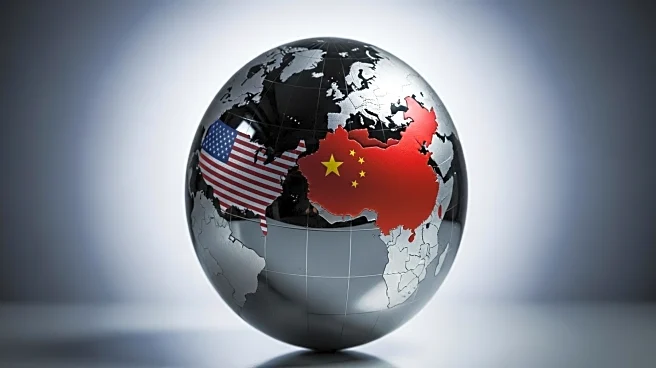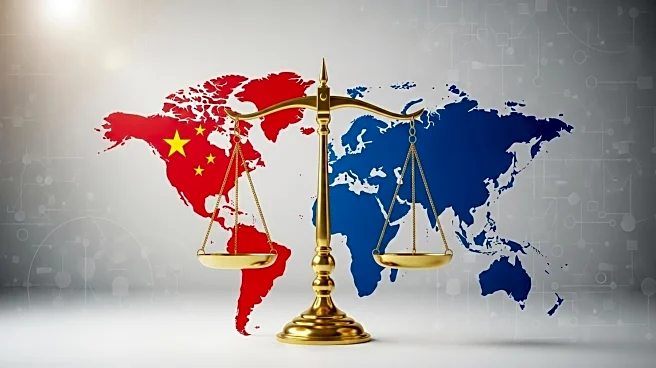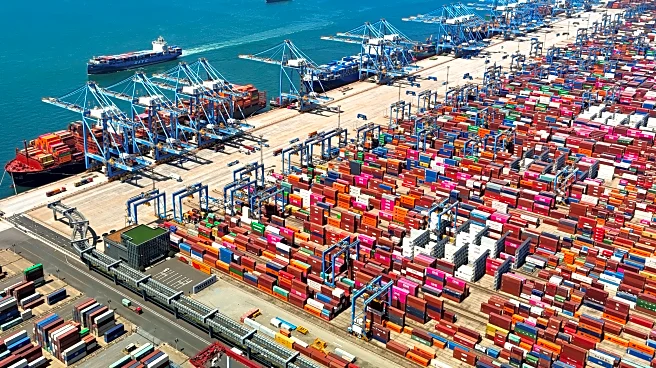What's Happening?
China has issued its first official response to President Trump's threat of imposing a 100% tariff on Chinese imports. The Chinese Commerce Ministry stated that while China does not desire a tariff war, it is not afraid of one. This response comes after President Trump announced potential tariffs in reaction to China's new restrictions on the export of rare earths, which are crucial for various consumer and military products. The ongoing trade tensions threaten to disrupt a potential meeting between President Trump and Chinese leader Xi Jinping, and could end a temporary truce in the trade war. Both nations have accused each other of violating the spirit of the truce by imposing new trade restrictions. China emphasized the importance of resolving differences through negotiations rather than threats, and warned that it would take measures to protect its interests if the U.S. continues its current practices.
Why It's Important?
The escalation in trade tensions between the U.S. and China has significant implications for global industries reliant on rare earths, which are essential for manufacturing products like jet engines, radar systems, and consumer electronics. China's control over the majority of rare earths mining and processing gives it substantial leverage in trade negotiations. The U.S. and other countries could face increased costs and supply chain disruptions if access to these materials is restricted. The situation also highlights the broader geopolitical struggle between the two nations, with potential impacts on international trade policies and economic stability. Stakeholders in industries dependent on rare earths, including technology and defense sectors, are closely monitoring developments.
What's Next?
If the U.S. proceeds with the proposed tariffs and export controls, China is likely to implement corresponding measures to safeguard its interests. This could lead to further retaliatory actions, exacerbating the trade conflict. The potential meeting between President Trump and Xi Jinping may be jeopardized, reducing chances for diplomatic resolution. Businesses and governments worldwide will need to prepare for possible disruptions in supply chains and increased costs. The situation may also prompt other countries to seek alternative sources for rare earths, potentially reshaping global trade dynamics.
Beyond the Headlines
The trade tensions underscore the strategic importance of rare earths in modern technology and defense applications. As countries vie for control over these critical resources, ethical and environmental considerations regarding mining practices may come to the forefront. The conflict also reflects broader issues of economic nationalism and protectionism, which could influence future international trade agreements and policies.











